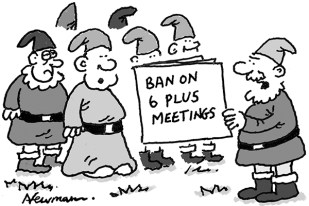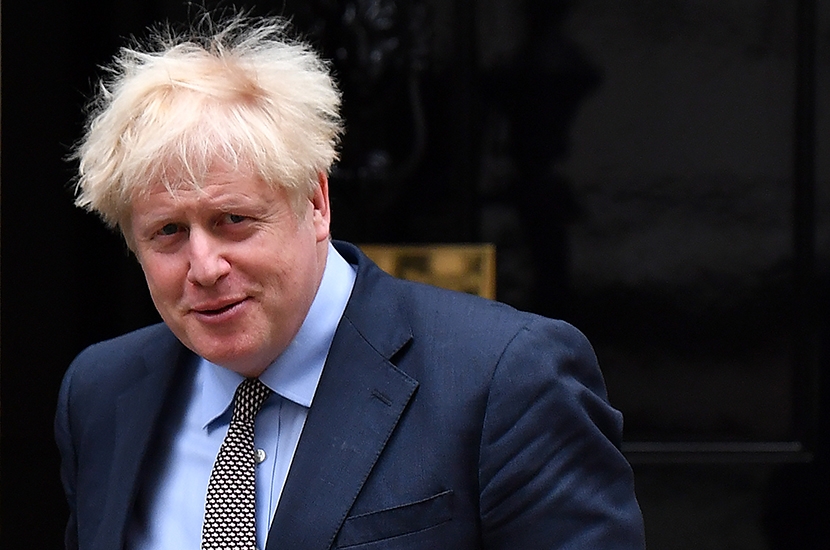Backbenchers are discussing when to give Downing Street a bloody nose, a former prime minister is on the warpath and the government is fighting on multiple fronts. All of this is contributing to the heated atmosphere at Westminster. But one thing is keeping Tory tempers in check: the party’s poll lead.
As long as the government is ahead in the polls, it is hard to declare that it is in crisis. This lead also limits the frustration of Tory MPs. You can’t claim that this or that event will lead to the Conservatives losing the next election when the opposition are still behind.
Why are the Tories still ahead despite such a torrid summer? To one of those involved with the Tories’ 2019 election victory, the answer is obvious: the party has a core vote of 30 per cent, to which it has added another 10 per cent who are Brexit enthusiasts. This gives them a floor of 40 per cent and explains why all the U-turns and missteps haven’t seen them slip behind Labour.

If this analysis is correct, then the Tories would be electorally wise to prioritise maintaining their Brexit coalition. They would not want to give any ammunition to those who are eager to cry ‘Brexit betrayed’ at any deal. They would want to avoid spurring the creation of a new party dedicated to pushing for a total Brexit and a more vigorous approach to the culture war, the small boats crossing the Channel and the like.
A new party may already be stirring. There are, as one person experienced in the setting up of new parties on the right observes, ‘lots of things going on in the undergrowth’. It is generally recognised by those most enthusiastic for a new party that Nigel Farage should have first dibs on getting it started. But some of his former colleagues are becoming irritated by how long he is taking to make his mind up on whether he wants to re-enter the fray. One tells me it is time for him ‘to fish or cut bait’.
It is not hard to imagine that a new party, particularly with Farage in charge, would pick up votes. It would bring the government’s poll rating, 43 per cent with YouGov, closer to its approval rating, 30 per cent. Labour would be likely to take the lead, which would change the mood at Westminster and remove one of Johnson’s most effective defences against internal dissent.
If a new pro-Brexit party was formed with Farage in charge, Labour would be likely to take the lead in the polls
No-deal Brexit seems more probable by the day. The extraordinary — and unwise — declaration from the Northern Ireland Secretary Brandon Lewis that the government is prepared to break in a ‘specific and limited way’ some of the international law obligations that come from an agreement signed by this Prime Minister and ratified by this parliament is all about being ready for no deal. One of those familiar with the thinking behind the plan says that ‘the PM feels we have to have a walk-away option and that they have us over a barrel on Northern Ireland’. The problem is that in the event of no trade deal between the UK and the EU and no agreement on which items crossing from Great Britain to Northern Ireland are at risk of entering the Republic, tariffs would have to be charged on all goods going that way until it was proved that they had remained in Northern Ireland. This would mean that Northern Ireland would be dislocated from the rest of the UK economy.
There is, though, a different reading of the current political situation. Some Tories in Johnson’s orbit put the thumping Tory victory in 2019 down to the success of the words ‘Get Brexit done’. They believe that the effectiveness of the slogan came not just from people’s desire to see the referendum result delivered but from their keenness to move on, to stop the endless debate about the subject. Indeed, the most potent Tory ad in the campaign was a plea to ‘stop the arguing’. Johnson’s pitch was that getting Brexit done would enable the government to get back to the people’s priorities.
So the concern is that no deal might irritate voters who don’t want Brexit to crowd out everything else once again. Keir Starmer clearly thinks this is where his opportunity lies. On Tuesday, he told the government to get on with it and do a deal so that everyone can ‘focus on what the public are concerned about, which is defeating this pandemic’. While Boris Johnson’s large majority means that there wouldn’t be a repeat of the parliamentary gridlock of the Theresa May years, it is hard not to think that a no-deal Brexit would dominate politics for the next few months at least.
The government is preparing for no deal for the third time now. Veterans of this work, though, point out that because so much depends on how the EU behaves, it is impossible to be fully ready. At the same time there’s a problem that, third time around, organisations may assume there will be a deal in the end, so there’s no need to prepare. ‘Like the boy who cried wolf, we take no deal less seriously every time,’ one minister in an important department for no-deal planning tells me. ‘If you’re a small businessman, why would you waste time preparing now?’
A disruptive no-deal Brexit could do further damage to the government’s reputation for competence, which has already taken a battering – 44 per cent of voters think the government is incompetent, up 10 per cent this year. This is a particular risk as the case Starmer is building against the government is all about competence. His cautious approach is never going to set pulses racing but it could become effective if the evidence mounts up.
The public have been forgiving of many of the government’s mistakes during the Covid crisis. There has been a mature acceptance that any administration would struggle in dealing with a new and unknown virus. But some of the government’s more wary ministers worry that tolerance for the problems caused by the failure to reach a deal will be far more short-lived unless the government can make a compelling case that EU intransigence was to blame.
Ultimately, whichever of these two interpretations of the Tories’ political position Johnson adopts will determine how far he is prepared to go to get a deal with the EU.
spectator.co.uk/coffeehouse - Hourly updates from Parliament and beyond.







Comments